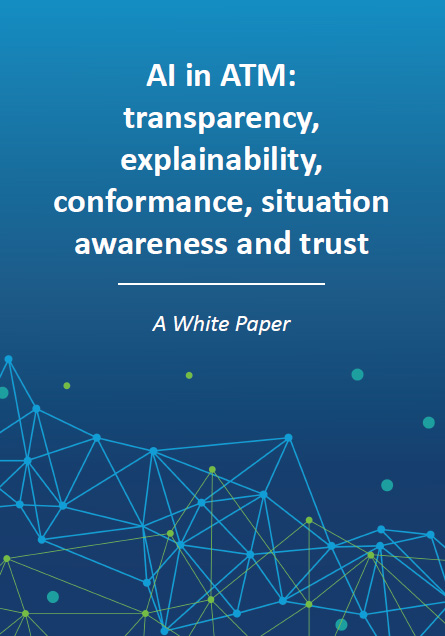In short

|
|
|---|---|
|
PROJECT ID
|
TAPAS |
|
PROJECT DURATION
|
2020-06-01 > 2022-11-30 |
|
PROJECT TYPE
|
Exploratory research |
|
TOTAL COST
|
EUR 997 410 |
|
EU CONTR.
|
EUR 997 410 |
|
STATUS
|
Ongoing |
TAPAS -Towards an Automated and exPlainable ATM System
Effective automation as an enabler to increase capacity is one of the pillars of future airspace management. However, adopting digital technologies also brings new challenges. In particular, our need as humans to be able to understand how decisions are made so that we can trust these artificial intelligence (AI) systems. The lack of explainability behind AI systems hampers our ability to rely on them fully, together with social acceptance and regulatory approval.
The TAPAS project carried out a series of tests showing how applications built using explainable AI can improve trust in human operating automation-enhanced air traffic management. The project explored highly automated scenarios (including unprecedented fully automated action decisions by the AI system) through explainable AI (XAI) prototypes together with visual analytics (VA) techniques, in order to identify needs and strategies to address transparency and explainability in two operational cases. Not all use cases present similar requirements: an air traffic controller needs a deeper understanding of solutions provided by an AI-based functionality that an operator in a non-safety-critical scenario. Prototype applications were applied to both pre-tactical air traffic flow and capacity management and to tactical conflict detection and resolution using human-in-the-loop simulations with the goal to overcome the transparency barrier.
With the testing and validation of these prototypes, TAPAS produced a general framework of explainability principles for AI/ML applications in airspace management and developed a set of principles and criteria, which pave the way for their successful general deployment in the airspace management domain. This outcome is expected to contribute to facilitate the effective uptake of AI/ML techniques in ATM.
Benefits
- Adding capacity in a resilient way
- Enhanced situational awareness and safety
- Improved cost efficiency
Participants
Boeing Research & Technology Europe S.L.U.
Centro de Referencia de Investigación Desarrollo e Innovación ATM, A.I.E. (coordinator)
Fraunhofer-Gesellschaft zur Förderung der angewandten Forschung e. V.
Indra Sistemas, S.A
ISA Software Limited
University of Piraeus Research Centre (UPRC)University of Piraeus Research Centre (UPRC)
This project has received funding from the SESAR Joint Undertaking under the European Union's Horizon 2020 research and innovation programme under grant agreement No 892358



